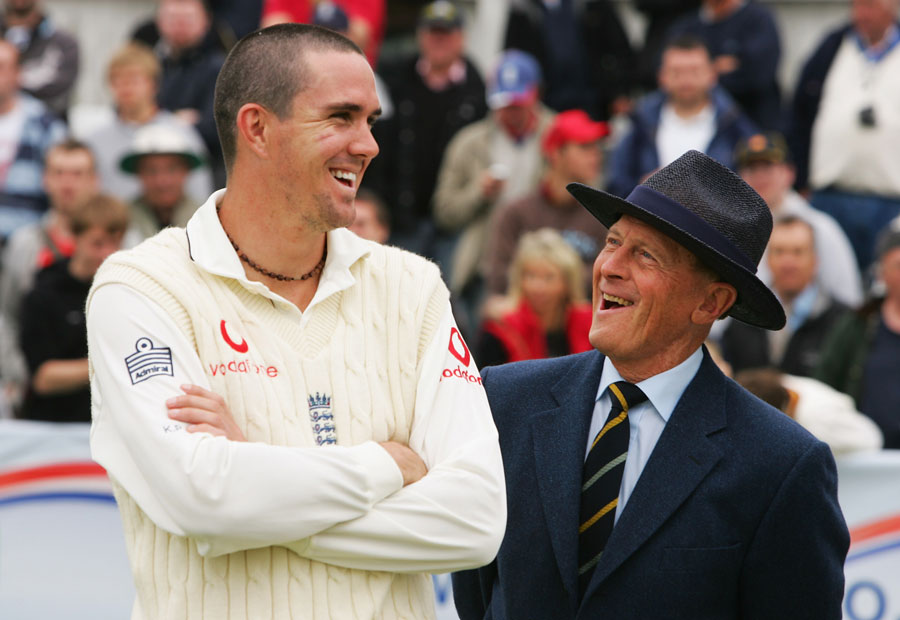On 13 August 1983, Geoffrey Boycott made a century for Yorkshire against Gloucestershire at Cheltenham. He stayed in all day, scoring 140 from 347 deliveries and angered his captain Raymond Illingworth by running out the free-scoring Kevin Sharp, who'd made a much faster hundred, while trying to keep the strike, and refusing to raise his own scoring rate.
Illingworth reported the incident to the Yorkshire committee and set in motion one of the most extraordinary uprisings in the history of English cricket. The committee issued a statement rebuking Boycott for batting that was "not in the best interests of the side", and was met with a furious response - from Boycott himself, who went on radio to deny that he had been officially reprimanded; from his friend Brian Clough, who used his Daily Mirror column to defend Boycott's batting; and from Sid Fielden, who led a group of reformers that would become central to the story.
On 3 October, the committee voted unanimously not to offer Boycott a contract for the 1984 season. The Reform Group swung into action. More than 400 people attended a meeting in a hotel in Ossett, and the committee was forced to vote again on the issue. The sacking was upheld via a statement that stressed the need to encourage younger players without the "dissension and discord that creates a lack of confidence".
Another group, the Members 84, was formed specifically to deal with the Boycott situation, and nothing less than a civil war broke out. Under tremendous public pressure, the committee offered a bizarre compromise that would have allowed Boycott to take part in six Championship games, but at a meeting on 21 January 1984, amid scenes described as "evangelical", a vote of no confidence in the committee was carried by the Yorkshire members, along with a motion to reinstate Boycott. The committee, which included Fred Trueman and Ronnie Burnett, resigned, and Boycott ultimately played on until his retirement at the end of the 1986 season. "Boycottshire" had spoken.
That winter of discontent came to mind as another story played out this week. It had many of the same elements: a dominant player of polarising force, an organisation out of touch with the feelings of its public, and a maverick media operator speaking out.
For Boycott read Kevin Pietersen, for the Yorkshire committee the ECB, and for Brian Clough read Piers Morgan.
Pietersen is one of the few English players to have commanded public attention in the way that Boycott had done. They could not be further apart as batsmen and yet they share certain traits, foremost a tendency to speak utterly plainly. They both have complex, sensitive personalities and have often found themselves the injured party in their confrontations with authority. It's fair to say that both have been scapegoats at times, and that both contributed to their own woes, too.
Around Boycott was the blunt, often brutal language of Yorkshire cricket in the 1980s. We live now in the age of euphemism, and thus the battle for the advantage has been more subtly fought. Pietersen has not been publicly denounced as Boycott was. All of that has been hidden in legality and management speak. Yet this language, opaque and non-specific, is key to the Pietersen issue.
The desire to control information is a phenomenon of modern sport and cricket is not unique in striving to do so, but the ECB has a particularly bad case of it. The rigid paradigm that they have constructed around their communications, from the way they school young players to talk about the game to the press statements laden with meaningless office jargon, has detached them from the very people they most need to understand them: the fans.
It resulted in the slapstick interview given by the new chief selector James Whitaker (to rights holders Sky and the BBC only) this week. Even pre-recording could not save the unfortunate Whitaker, who was chained to desperate sentences like "There's a group of players there looking forward to re-energising this team, going forward with different values, re-evaluating the culture of the team."
These constructs of language echo emptily. They are designed to sound good without conveying anything specific, and they have a dehumanising effect. The people who step forward to utter them become trapped and typecast by the image that they create. They lack the linguistic power to challenge a forceful attack in plain English. They are evasive and diversionary and ultimately counter-productive.
It's probably fair to say that the ECB has never been as alienated from public opinion as it is now, and as the Yorkshire committee found out, that can be a dangerous space to occupy.
Only one person has attempted to argue a case for Pietersen's exclusion on cricketing grounds. Geoffrey Boycott took the airwaves to say that KP's batting this winter had been irresponsible and selfish, and he deserved to be dropped for it. You may or may not agree with him (and there is humour in Boycott becoming annoyed by someone hellbent on batting he way they want to) but his argument was clear. There is some sanity in that.

